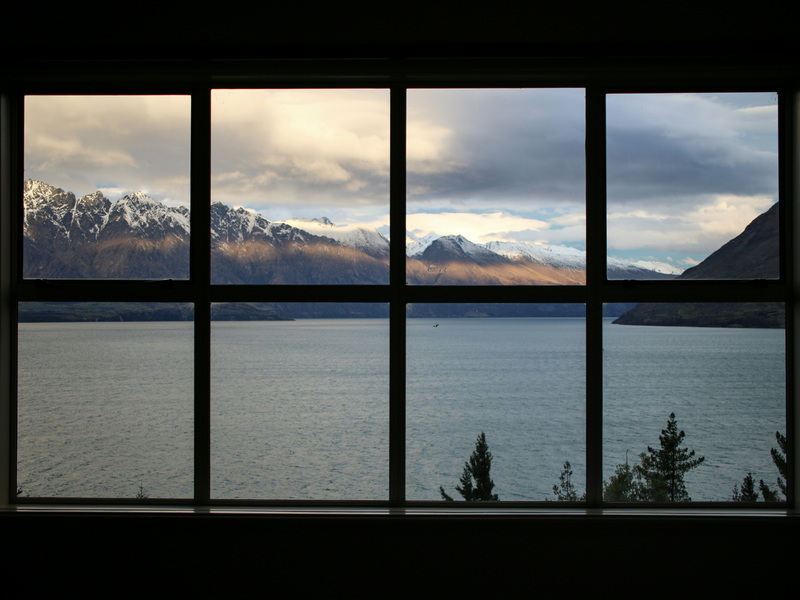English 




Views: 222 Author: Astin Publish Time: 2025-02-13 Origin: Site



Content Menu
● Why Replace Aluminum Windows with Vinyl Windows?
>> Cost Savings
● Tools and Materials You'll Need
● Step-by-Step Guide to Replacing Aluminum Windows with Vinyl Windows
>> Step 2: Measure the Existing Windows
>> Step 3: Remove the Old Aluminum Windows
>> Step 4: Prepare the Opening
>> Step 5: Install the New Vinyl Windows
>> Step 6: Insulate and Seal the Windows
>> Step 7: Add Trim (Optional)
● Tips for a Successful Window Replacement
● Comparing Vinyl and Aluminum Windows
● FAQ
>> 1. How much does it cost to replace aluminum windows with vinyl windows?
>> 2. How long does it take to replace aluminum windows with vinyl windows?
>> 3. Can I replace aluminum windows with vinyl windows myself?
>> 4. What are the benefits of hiring professional installers?
>> 5. How do I choose the right vinyl windows for my home?
Replacing old aluminum windows with new vinyl windows can improve your home's energy efficiency, appearance, and value. Aluminum windows, especially older single-pane models, are not very energy efficient and can be unattractive.
Vinyl windows offer better insulation, lower maintenance, and a more modern look. This comprehensive guide will walk you through the process of replacing aluminum windows with vinyl windows, providing detailed instructions and helpful tips along the way.

Aluminum windows are known for their poor insulation properties. They allow heat to transfer easily, leading to higher energy bills. In contrast, vinyl windows are designed with multiple panes of glass and insulated frames, which significantly reduce heat transfer. For even greater energy efficiency, choose vinyl windows with argon or krypton gas between the panes and a low-E coating on the glass. According to the U.S. Department of Energy, windows can account for up to 30% of a home's energy loss, so upgrading to energy-efficient vinyl windows can make a significant difference in your energy consumption.
Old aluminum windows can look dated and unattractive. Vinyl windows offer a more modern and clean appearance. They are available in a variety of styles and colors to match your home's aesthetic. Upgrading to vinyl windows can significantly enhance your home's curb appeal.
Vinyl windows require very little maintenance compared to aluminum windows. Vinyl frames don't chip, rot, corrode, or dent like wood or metal frames. This means you won't have to worry about painting, staining, or repairing them. Simply clean them with soap and water to keep them looking their best.
While aluminum is a strong material, it is also susceptible to corrosion, especially in coastal areas. Vinyl windows are highly resistant to moisture, corrosion, and salt, making them an excellent choice for coastal climates. High-quality vinyl windows are designed with reinforced frames and impact-resistant glass options, making them capable of withstanding extreme weather conditions.
Although the initial cost of vinyl windows may be higher than aluminum windows, the long-term cost savings can be significant. Vinyl windows are more energy-efficient, which can lower your energy bills. They also require less maintenance and are more durable, which can save you money on repairs and replacements.
Before starting the replacement process, gather all the necessary tools and materials. Here's a comprehensive list:
- New vinyl windows (custom-sized to fit each existing window opening)
- Utility knife
- Screwdriver or drill with screwdriver bits
- Block of wood
- Hammer
- Chisel
- Level
- Square
- Shims
- Caulk
- Caulk gun
- Trim (optional)
- Safety glasses
- Gloves
- Pry bar (if needed)
- Measuring tape
- Cleaning supplies (soap, water, rags)
- Insulation (fiberglass or foam)
Follow these detailed steps to replace your aluminum windows with vinyl windows:
- Protect the surrounding area by laying down drop cloths or plastic sheeting to catch any debris.
- Remove any curtains, blinds, or other window treatments.
- Clear any furniture or obstacles from the work area.
- Measure the height and width of each window opening to ensure that the new vinyl windows are the correct size.
- Check for any irregularities or out-of-square conditions that may affect the fit of the new windows.
- Order your new vinyl windows based on these measurements. For higher energy efficiency, choose windows that have argon or krypton gas between the panes and a low-E coating on the glass.
- Use a utility knife to cut through the caulking and paint around the perimeter of the windows, both inside and outside the house. This will make removal easier and minimize any damage to the trim.
- Remove any screws holding the windows to the flange.
- If the windows are difficult to remove, tap the frame around the windows with a block of wood from the inside to push them out of the opening. Be careful not to break the glass.
- Once the windows have been removed, use a hammer and chisel to remove the metal flange around the openings.
- Inspect the window opening for any damage or rot. Repair any damaged wood before proceeding.
- Clean the opening thoroughly to remove any debris, dirt, or old caulking.
- Ensure the opening is square, level, and plumb.
- Carefully place the new vinyl window into the opening.
- Use a level, square, and shims to make sure the window is plumb, square, and level.
- Drive screws through the window casing into the framing around the opening to secure the new window.
- Make sure the screws are long enough to penetrate the framing but not so long that they protrude through the exterior of the house.
- Fill any gaps between the window frame and the opening with insulation (fiberglass or foam). This will help to prevent air and water leaks.
- Caulk the windows to seal any remaining gaps. Apply a bead of caulk around the perimeter of the window, both inside and outside the house.
- Smooth the caulk with your finger or a caulking tool for a clean, professional finish.
- If desired, apply trim between the window and the opening. This can add a decorative touch and help to seal any remaining gaps.
- Use finishing nails or screws to attach the trim to the window frame and the surrounding wall.
- Caulk any gaps between the trim and the window or wall.
- Remove any debris, drop cloths, or plastic sheeting.
- Clean the new windows with soap and water.
- Dispose of the old aluminum windows properly.

Here are some additional tips to ensure a successful window replacement project:
- Hire Professionals: If you're not comfortable with DIY projects, consider hiring experienced professionals to install your vinyl windows. Professional installers will ensure that the windows are properly installed and sealed, which can help to prevent air and water leaks.
- Choose the Right Windows: Select high-quality vinyl windows that are designed for your climate. Look for windows with energy-efficient features such as double- or triple-pane glass, low-E coatings, and argon or krypton gas fills.
- Proper Sealing: Ensure the windows are level, plumb, and square for a proper fit. They will use shims and insulation materials to secure the windows and prevent any air or water leaks.
- Consider Impact-Resistant Windows: If you live in an area prone to severe weather events, consider impact-resistant windows. These windows are designed to withstand high winds and impact from debris.
- Check the Weather: Avoid replacing windows during extreme weather conditions such as rain, snow, or high winds.
To help you make an informed decision, here's a comparison of vinyl and aluminum windows:
| Feature | Vinyl Windows | Aluminum Windows |
|---|---|---|
| Cost | Generally less expensive than aluminum windows. | Upfront costs can be lower than vinyl. |
| Energy Efficiency | More energy-efficient due to better insulation properties. | Generally have poor insulation, leading to higher energy bills. |
| Maintenance | Require less maintenance; don't chip, rot, corrode, or dent. | Require more maintenance; can corrode, especially in coastal areas. |
| Durability | Highly resistant to moisture, corrosion, and salt; can withstand extreme weather conditions with reinforced frames and impact-resistant glass. May not fare as well in extreme heat or cold or dramatically fluctuating climates. | Known for strength and rigidity; can withstand high winds and impact from debris. Stronger window material option. More prone to corrosion and fading. |
| Aesthetics | Available in a variety of styles and colors to match your home's aesthetic. | Can dent and scratch easily, aging less gracefully. |
| Installation | Easier to install. | Can be more challenging to install. |
| Environmental Impact | Vinyl production can have environmental concerns, but recycling programs are improving. | Aluminum is highly recyclable, reducing its environmental impact. |
| Best For | Homeowners looking for energy efficiency, low maintenance, and affordability. Suited for most weather conditions but might not fare as well as aluminum windows in extreme heat or cold or in areas where the climate fluctuates dramatically. | Situations needing strength, rigidity and durability in extreme weather. Homes where aesthetics are less of a concern. |
Replacing aluminum windows with vinyl windows is a worthwhile investment that can improve your home's energy efficiency, aesthetics, and value. By following the steps outlined in this guide, you can successfully complete the replacement process and enjoy the many benefits of new vinyl windows. Whether you choose to DIY or hire professionals, make sure to select high-quality windows and follow proper installation techniques to ensure a long-lasting and energy-efficient result.

The cost of replacing aluminum windows with vinyl windows can vary depending on several factors, including the size and style of the windows, the quality of the materials, and whether you hire professionals or do it yourself. Generally, vinyl windows cost less than aluminum windows.
The time it takes to replace aluminum windows with vinyl windows depends on the number of windows you are replacing and your level of experience. A single window can be replaced in a few hours, while a whole house can take a few days. Professional installers can typically complete the job more quickly and efficiently than DIYers.
Yes, you can replace aluminum windows with vinyl windows yourself if you have the necessary skills, tools, and experience. However, it is important to follow proper installation techniques to ensure that the windows are properly sealed and energy-efficient. If you are not comfortable with DIY projects, it is best to hire professional installers.
Hiring professional installers can ensure that your vinyl windows are properly installed and sealed, which can help to prevent air and water leaks. Professional installers also have the experience and expertise to handle any unexpected issues that may arise during the replacement process. While it may cost more upfront, hiring professionals can save you time, money, and headaches in the long run.
When choosing vinyl windows for your home, consider the following factors:
- Energy Efficiency: Look for windows with double- or triple-pane glass, low-E coatings, and argon or krypton gas fills.
- Durability: Choose high-quality vinyl windows with reinforced frames and impact-resistant glass options.
- Style: Select a style that complements your home's architecture. Vinyl windows are available in a variety of styles and colors.
- Warranty: Look for windows with a comprehensive warranty that covers both materials and labor.
[1] https://todayshomeowner.com/windows/video/how-to-replace-aluminum-windows-with-vinyl-windows-on-your-home/
[2] https://www.thewindowdepotllc.com/vinyl-vs-aluminum-windows/
[3] https://gist.github.com/allenfrostline/c6a18277370311e74899424aabb82297
[4] https://windowdepotdallas.com/blog/can-you-replace-aluminum-windows-with-vinyl-windows
[5] https://www.fixr.com/articles/vinyl-vs-aluminum-windows
[6] https://b3logfile.com/pdf/article/1653485885581.pdf
[7] https://rosieonthehouse.com/blog/heres-why-you-should-replace-your-old-single-pane-aluminum-windows-with-vinyl/
[8] https://paradigmwindows.com/vinyl-vs-aluminum-windows/
[9] https://blog.csdn.net/Oomai_/article/details/134718108
[10] https://todayshomeowner.com/windows/guides/vinyl-vs-aluminum-windows/
Aluminum Profile Extrusion: Mechanical Properties, Alloy Types, and Temper Differences
Aluminum Profiles in Electronics: Enhancing Durability and Heat Management
Exploring Structural Aluminum Profiles: Strength Meets Lightweight Design
The Role of Aluminum Profiles in Solar Panel Frame Construction
Aluminum Profiles for Heat Dissipation: What You Need to Know
Understanding the Advantages of T-Slot Aluminum Profiles in Manufacturing
Top Aluminum Profiles Manufacturers and Suppliers in Austria
